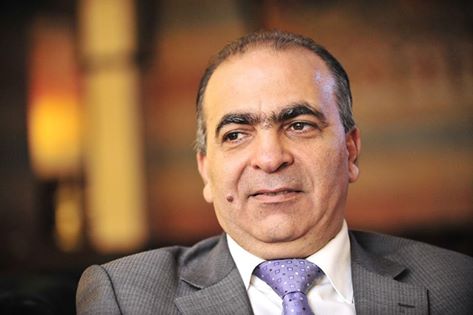“Will the opposition be able to be unified and realistic enough to realize they did not win the war? … Is the government, after the liberation of Deir-ez-Zor and Raqqa, ready and prepared to genuinely negotiate and not simply announce victory?”
These excerpts from de Mistura's last statement truly deserve pause, and are questions every Syrian should to try to answer.
In my own personal opinion, reading of the course of events in Syria and using my evaluation of the extent of its tragedy, I am certain that the regime has not been victorious and has not won the war, either politically or militarily. While I can also say that the opposition has truly lost it, politically and militarily.
The one who has been victorious on the ground is Russia first, as it is in de facto command in all areas where the armed opposition control has receded, meanwhile its hands are around President Bashar al-Assad's neck and is able to suffocate him as it wants.
The one who has been victorious politically is also Russia, as it has gained a near international mandate, and a temporary turning of America's eyes, to do what it wants on Syrian territory, from unabated bombardment and killing, and building military bases wherever, to sponsoring reconciliations cast entirely according to its will between Assad and armed factions who are now practically without support or supporters in many areas outside regime control, which has pushed them to accept Russian conditions and its guarantees, which has made it both opponent and judge.
The Assad regime, if it has not fallen in practice because of the Russian intervention — which is what may give Assad the right to consider it a victory by the standards of mafiosos and not statesmen — had in practice also been removed from the circle of those with influence over the course of events, and turned the younger Assad into a symbolic president whose task is to make statements, open exhibitions of canned goods and sweets, and take some photos with his family.
But the leading opposition institutions on the political scene, which I believe have realistically lost the political and military battles a long time ago, and are still far from being aware of their reality because they have lost battles they never even entered — the military battles were entrusted to takfiri Islamist organizations or other Islamist fighting groups with various loyalties according to the state which provided them their money and weapons.
The battle of the political opposition was left to the foreign ministries of the countries which fund the offices of the opposition institutions and their figures. These countries became engaged, as always happens in the international political world, and worked on achieving their national interests first and were not very concerned with achieving victories for an opposition which spent most of its time in rhetorical battles and disputes over the illusionary gains and positions among its factions, platforms and figures.
The opposition institutions were content with the role of political analyst and media spokesman in the name of its backers, without any attempt to try or attempt to study the situation and deal with what was required to achieve a victory for freedom in Syria.
But is the Syrian opposition able to unite its ranks and be realistic enough to know that it has not won the war?
I believe the bigger problem lies here, as on the regime side, it does not matter whether the tyrant knows what is occurring around him or not, as he is already outside the decision-making circle. But at the same time there are entities safeguarding the unity of decision-making, addressing the management of his battles and taking decisions for them and informing him of what he must do, and therefore we always find a single decision and a single negotiating delegation with previously defined missions (mostly to prevent any progress occurring) and an organized style. In contrast, in the opposition arena, there are various guardian parties which are not in accord and engage in fighting among themselves, which has created various platforms and opposition institutions unable to unify their decision-making and their vision for a solution — or even their delegation to negotiations.
This is what gives the opposition various understandings of the situation, according to different guardians, which makes it hard to be realistic at the level demanded by de Mistura and most Syrians, unless one of two conditions are fulfilled: 1) the opposition's decision-making is independent and its first and last focus is on achieving the interests of Syrians, or 2) the aims of the various guardians are unified.
The best, more serious and most realistic is for the Syrian political, cultural and economic elite to work on achieving the first choice in all its difficulty, because the time has come for us to understand as Syrians, after the tragedy which we have lived through and the disasters which have afflicted us, that in politics there are no good intentions or charitable organizations, and losing independent decision-making means losing freedom and independence at once.
Syria will not be independent, it will not be liberated and it will not regain stability, without a national program reading the situation without delusions and developing a realistic solution able to be implemented and maintain the independence and unity of Syria, guaranteeing the orderly departure of the Assad family from the necks of the Syrian people, without that leading to chronic chaos or Syria falling into the clutch of terrorism or severe sectarian strife.
This article was translated and edited by The Syrian Observer. Responsibility for the information and views set out in this article lies entirely with the author.


